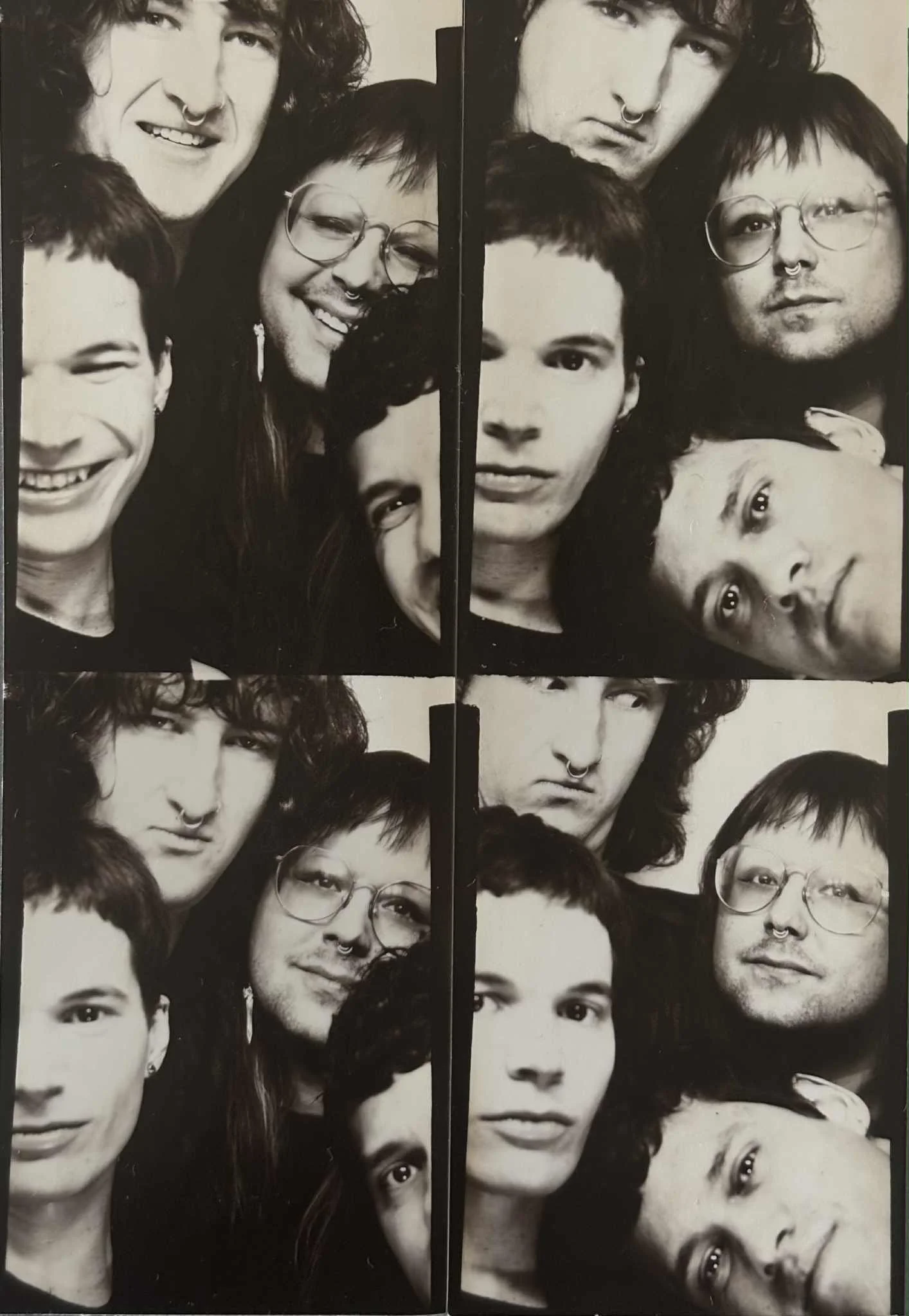
Great Australian Bank:
The Process, Not the Result
The band's origins trace back to 2020, a "bit of fun between old friends" who had a shared affection for the sounds of classic Australian bands like Midnight Oil, Icehouse, and Spy vs. Spy. As Tass recounts, music was always a foundational part of their lives, steeped in the gritty post-punk of their father's record collection. "My dad would always be spinning Joy Division, Buzzcocks, The Mark of Cain and Midnight Oil at home," they recall. "When I eventually started guitar lessons at 10 years old, the obsession with music really kicked in." After moving back to Melbourne from a stint in Perth, the band became a way to reconnect with childhood friends from Tasmania. While initial momentum was "stymied by covid lockdowns," the project eventually took on a new life, evolving from a casual jam session into a serious creative endeavour.
That evolution is clear in their sound. The band notes a shift from their earlier, "more aggressive and pointed" tracks to a sound that is now "a lot more emotive and melodic." They credit this change to a natural evolution in their listening habits, which softened over time from "rhythmically rigid" bands like Joy Division and Helmetto the more melodic tones of The Church, The Go-Betweens, and The Cure. This artistic maturation is reflected in their creative process. While they once built songs from a single riff, they now often start with a more intimate approach, writing on an acoustic guitar before "fleshing them out with the band in a room." This has allowed them to embrace "space and melody more recently, rather than just writing songs that have complicated arrangements."
This dedication to their craft finds its greatest expression on the stage. The band’s live shows are where their energy truly ignites, with a particularly standout memory being a mini-festival in a packed Hobart basement called Skrillzone. The gig took a chaotic but memorable turn when the guitarist broke two strings on their instrument and, without a backup, "jumped on the mic and just kinda threw myself into the crowd for the last quarter of the set." Their favourite song to perform live is "Coal," the closing track from their first LP, which they love for its dynamic build and the "gang vocal section towards the end" that leaves them buzzing every time.
Beyond the music, Great Australian Bank is deeply connected to their community and its struggles. The band isn’t just about making art; it’s about using their platform for a purpose. They openly discuss their activism, sharing members with fellow Naarm band The Mundaynes and proactively supporting causes like mutual aid for families in Gaza and activism against neo-Nazis in Melbourne. This commitment to their values is perhaps best encapsulated in their direct and powerful message to fans: “Free Palestine. Don’t stop talking about it. Don’t stop marching. Give to mutual aid when you can.”
This ethos extends to how they view the music industry itself. While acknowledging that social media can help link people and empower artists, they are fiercely critical of a system that they believe massively underpays artists. They point out the irony of being more connected than ever while being paid "in dregs from capitalist streaming giants." The current "cost-of-living crisis" makes it even harder to sustain their art, forcing them to rely on the tenuous income from merch and ticket sales. For them, the biggest change they would make is to "make streaming royalties equitable so working artists can actually afford to live."
It's a perspective informed by a piece of advice that has become a core mantra for the band: “we live in the process, not the result.” It’s a message that was offhandedly given by their former drummer, Alex, but has stuck with them for its wisdom. For Great Australian Bank, the joy is found in the creation, the live performance, and the connection to a "living, breathing scene that’s bigger than the sum of its parts." They’re not chasing adulation; they're simply committed to the work, the community, and the process of making music that matters.




